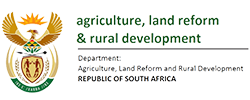HOW HAS CONSUMER EDUCATION INFLUENCED PORK CONSUMPTION IN SOUTH AFRICA? INSTRUMENTAL VARIABLE REGRESSION ANALYSIS
The paper evaluates the impact of consumer education on pork consumption in South Africa by using time series data on levy expenditure on consumer education over a ten-year period. Furthermore, we introduce quantitative measures of two non-economic factors (health and nutrition, and tastes and preferences) based on previous research which indicates that they are important drivers of meat consumption. We employ an instrumental variable regression analytical framework. To account for the dynamic response of consumer education effects on consumption patterns, a lagged variable for expenditure on consumer education is included in the specified model. The positive estimate (0.045) on consumer education is highly significant, implying that consumer education is associated with a 4.5% increase in pork consumption. In concurrence with previous studies, findings show that peoples’ tastes and preferences for processed pork products positively impact on pork consumption while health and nutrition (severe malnutrition) exhibits a negative effect on pork consumption (Published in the International Journal of Applied Business and Economic Research).



